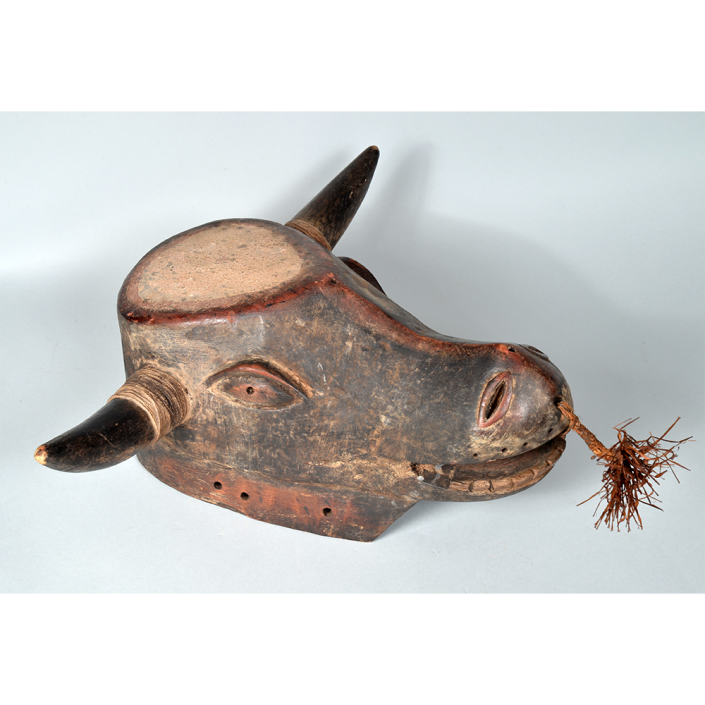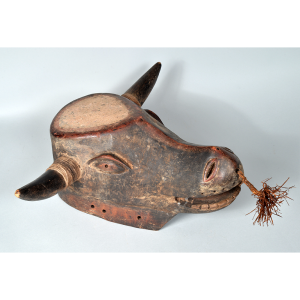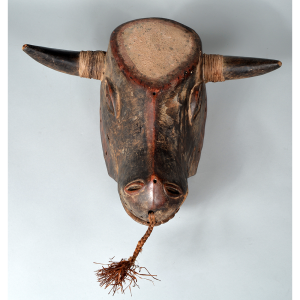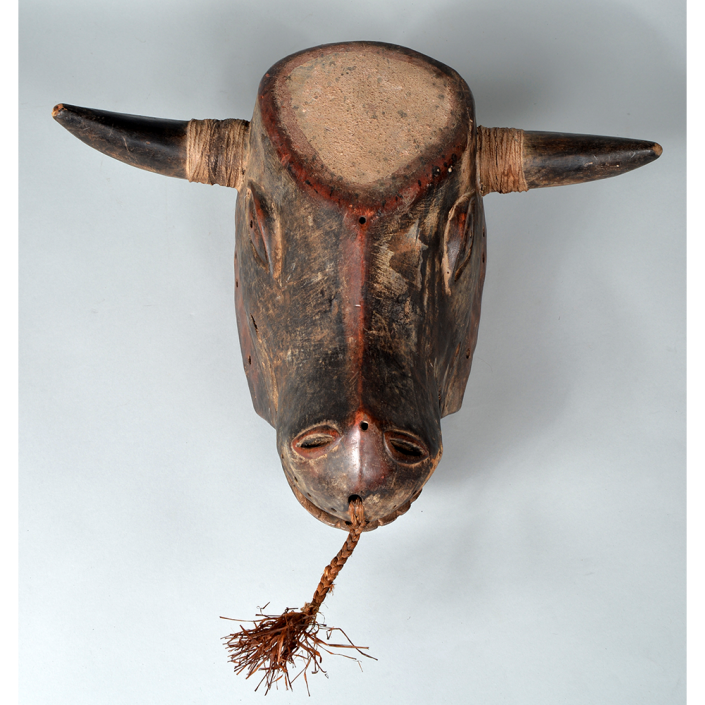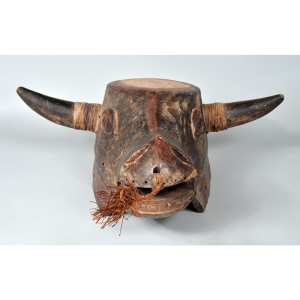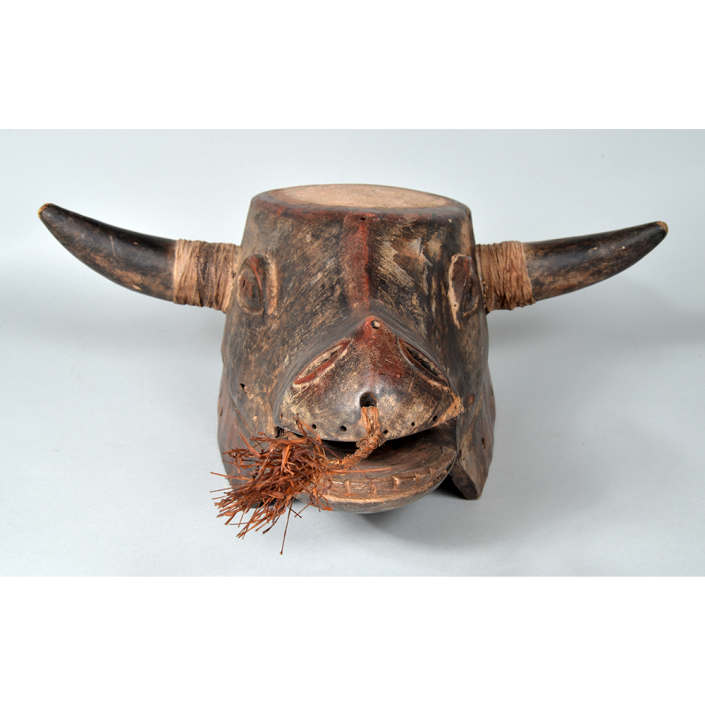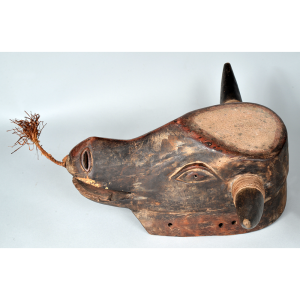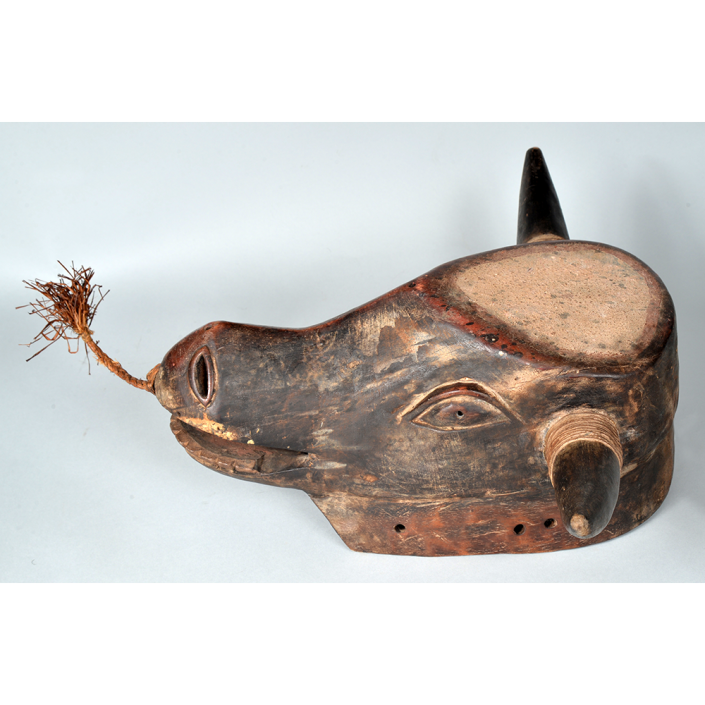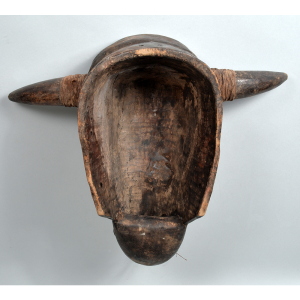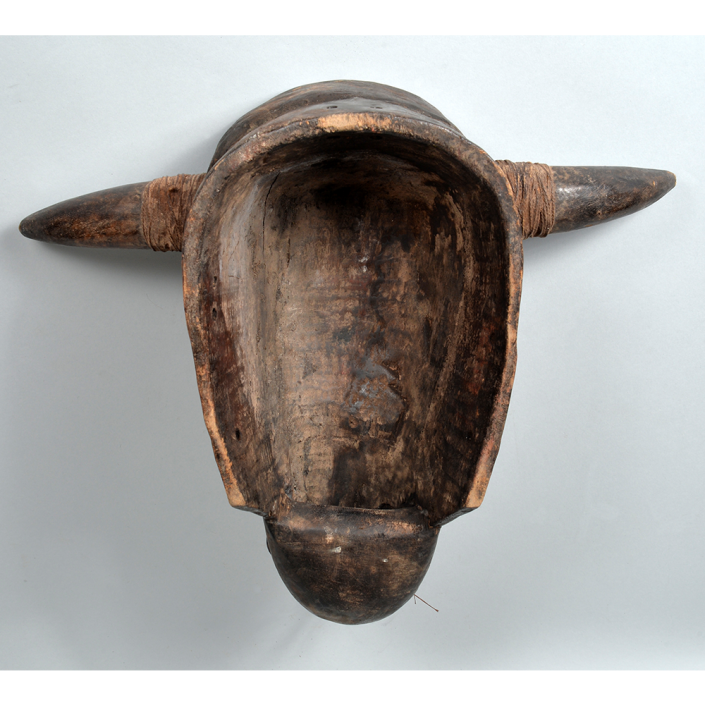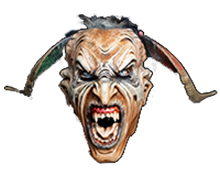TITLE: Bidjogo Dugn-be
TYPE: helmet mask
GENERAL REGION: Africa
COUNTRY: Guinea-Bissau
SUBREGION: Bissagos Islands
ETHNICITY: Bidjogo
DESCRIPTION: Dugn-be (Village Ox) helmet mask
CATALOG ID: AFGW001
MAKER: Unknown
CEREMONY: Adult Initiation
AGE: 1970s-1980s
MAIN MATERIAL: wood
OTHER MATERIALS: plant fiber; cotton strips; kaolin clay
The Bidjogo people (also written Bijogo or Bidyogo) are a small ethnic group inhabiting coastal Guinea-Bissau. They continue to practice their animistic religion, resisting conversion to Islam unlike many neighboring peoples. Their masks are primarily used in manratche, the adult initiation ritual for boys. There are actually multiple initiation rituals in Bidjogo society, ranking boys based on their age group. Unlike most African ethnic groups, the Bidjogo do not have specialized carvers; instead, each family makes its own masks.
The ox is an unusual masking choice in Africa, because normally masks are intended to invoke the power of wild animals and their special traits. In contrast, oxen are domesticated (dugn-be means literally “ox raised in the village”), brought to the Bidjogo by Portuguese traders late in the fifteenth century. The Bidjogo economy soon began to revolve domesticated cattle at least as much as their traditional fishing.
Initiates in the middle age group of boys wear the masks to celebrate the wild nature of post-puberty life. Masqueraders imitate the ox’s aggressive behavior. Initiation masks are critical to achieving the social status necessary for creating objects of religious worship used for entering the afterworld where the deceased becomes one with the Bidjogo god.
The Bidjogo use four different kinds of bull masks. The white triangle at the center of its upper brow marks this mask as a dugn’be. Dancers wear the mask attached to a long, cylindrical wood or wicker neck that rests on their shoulders with a raffia costume.
